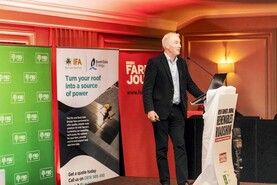This content is copyright protected!
However, if you would like to share the information in this article, you may use the headline, summary and link below:
Title: Land Tenure patterns around the world
In 2014 the Scottish Agricultural Land Tenure Evidence Review was published, including extensive case studies of land tenure arrangements around the world. This article summarises the case studies.
https://www.farmersjournal.ie/land-tenure-patterns-around-the-world-356530





SHARING OPTIONS: